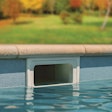POOLCORP Offers Financing

"With less capital available for consumer loans in the current economic climate, we see a significant opportunity with Lending Club to help our customers secure business with homeowners," said Mark Joslin, vice president and CEO for the Covington, La., distributor. "Lending Club leads a new category of financial institutions that fill a gap created by traditional lending institutions scaling back on their consumer loan businesses."
Through the program, borrowers will be able to get unsecured, fixed-term loans for between $1,000 and $35,000 at interest rates ranging from 6.78 to 25.41 percent, according to the company.
"Homeowners interested in renovating their pools or pool equipment, purchasing new inground or aboveground pools, spas or looking for other backyard living enhancements, have a potential funding source at their disposal," Joslin added.
POOLCORP, as the investor, will evaluate and fund approved loans, which will be issued by WebBank, an FDIC-insured bank based in Utah.
"We view this opportunity with Lending Club as an investment in our customers," said Joslin.
Interested POOLCORP customers should contact their Business Development Representative for more information on the program.
SPEC Looks To Increase Membership, Funding

SPEC plans to reduce dues to make membership affordable to all industry members in hopes of increasing membership to 1,000 this year. The association will also conduct a new campaign aimed at raising funds for government-relations efforts, and a new website will be created to help inform and recruit industry participants.
Among the bolder ideas is SPEC's plan to create an Ambassador Program for chapters of California's Independent Pool and Spa Service Association.
"Many Chapters of IPSSA along with national organizations give significant contributions to SPEC every year. These contributions are vital funding for the Council. However, it's not enough," the association said in a press release. "They need members, lots of members who are voters, which is what those seeking election care about. For SPEC to reach every pool service company, builder, subcontractor, manufacturer, distributor and supplier in California, it's going to take many people in many different places.
"One of the logical areas to focus on is the Chapter organizations. The concept is simple. Each Chapter will nominate a chapter member to be their SPEC Ambassador. The Ambassador will keep Chapter members informed on the work accomplished by SPEC and need for action when there is an alert. They will also assist in recruiting SPEC members, specifically from the membership in their chapter."
For more information on the SPEC Ambassador Program or its other new efforts, visit www.calspec.org or email [email protected].
Mr. Schureman Goes To Washington

Dear Senator Hatch,
I'm an owner of a small business in Salt Lake City, Utah. We sell backyard products. Our main focus is selling and servicing hot tubs. I'm writing to you about the bill S-148, the Discount Pricing Consumer Protection Act. It basically wants to strip the Supreme Court's Leegin Decision of 2007 allowing manufacturers, distributors and retailers to set minimum advertised pricing by reinstating the Sherman Antitrust Act of 1890.
Here's the problem: they didn't have virtual stores in 1890. The Sherman Act was based upon retailers being "brick and mortar" and having some shared level of overhead. Though Sears and Roebucks had a catalog, they had retail stores across America to service their customers. We, as "mom and pop" stores, serve a purpose by not only retailing product but also servicing it through actions or assisting customers verbally at our locations.
Case in point:
We sell aftermarket products for hot tub maintenance. We, of late, have had customers tell us that they are buying the spa chemicals online at significantly lower prices with free shipping and no tax (and those are the few that we hear from). I don't blame them. When they can buy a bottle of spa sanitizer online for $11.99 with free shipping while we sell it at $18.99, it's a no brainer. The problem for us is that the same bottle costs us around $10.
Virtual stores can do this because they have little real estate costs. The rub is this: we educated that customer by spending time explaining hot tub care and promoting that manufacturer's product. The only reason the customer knew what to shop for was because of us, at the local level. We are losing sales to our competitors from outside our local market. While I believe e-commerce has a place on the Internet I think we should come up with some language to allow a manufacturer or distributor the right to police their retailers and distributors.
I don't want to be that frog sitting in a pot with lukewarm water getting ready to boil. The chemical manufacturer at present has told me their web-based sales represent 4 to 5 percent of sales. What I'm afraid of is once the percentage of Internet sales increases, we will be out of the picture and there will be more brick-and-mortar stores closing at alarming rates across this country. Help us, senator; my froggy feet are starting to warm up. Protect middle class America by not signing the S-148 bill. The Sherman Act is antiquated. We need your help!
Sincerely,
Ray F. Schureman, owner Backyards of AmericaSalt Lake City
P.S. We also need help with federal regulation on imposing countrywide state sales tax for all Internet sales. It's not fair that the small local businesses are the only ones collecting sales tax for our governments.











































